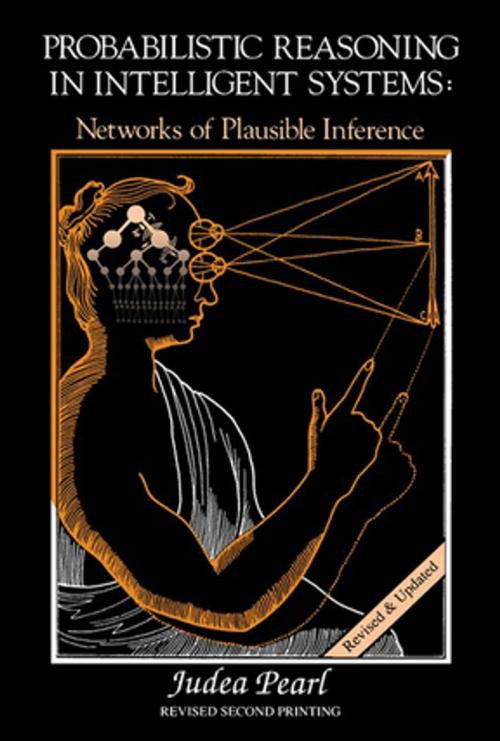Probabilistic Reasoning in Intelligent Systems
Networks of Plausible Inference
Nonfiction, Computers, Advanced Computing, Artificial Intelligence, General Computing| Author: | Judea Pearl | ISBN: | 9780080514895 |
| Publisher: | Elsevier Science | Publication: | June 28, 2014 |
| Imprint: | Morgan Kaufmann | Language: | English |
| Author: | Judea Pearl |
| ISBN: | 9780080514895 |
| Publisher: | Elsevier Science |
| Publication: | June 28, 2014 |
| Imprint: | Morgan Kaufmann |
| Language: | English |
Probabilistic Reasoning in Intelligent Systems is a complete and accessible account of the theoretical foundations and computational methods that underlie plausible reasoning under uncertainty. The author provides a coherent explication of probability as a language for reasoning with partial belief and offers a unifying perspective on other AI approaches to uncertainty, such as the Dempster-Shafer formalism, truth maintenance systems, and nonmonotonic logic.
The author distinguishes syntactic and semantic approaches to uncertainty--and offers techniques, based on belief networks, that provide a mechanism for making semantics-based systems operational. Specifically, network-propagation techniques serve as a mechanism for combining the theoretical coherence of probability theory with modern demands of reasoning-systems technology: modular declarative inputs, conceptually meaningful inferences, and parallel distributed computation. Application areas include diagnosis, forecasting, image interpretation, multi-sensor fusion, decision support systems, plan recognition, planning, speech recognition--in short, almost every task requiring that conclusions be drawn from uncertain clues and incomplete information.
Probabilistic Reasoning in Intelligent Systems will be of special interest to scholars and researchers in AI, decision theory, statistics, logic, philosophy, cognitive psychology, and the management sciences. Professionals in the areas of knowledge-based systems, operations research, engineering, and statistics will find theoretical and computational tools of immediate practical use. The book can also be used as an excellent text for graduate-level courses in AI, operations research, or applied probability.
Probabilistic Reasoning in Intelligent Systems is a complete and accessible account of the theoretical foundations and computational methods that underlie plausible reasoning under uncertainty. The author provides a coherent explication of probability as a language for reasoning with partial belief and offers a unifying perspective on other AI approaches to uncertainty, such as the Dempster-Shafer formalism, truth maintenance systems, and nonmonotonic logic.
The author distinguishes syntactic and semantic approaches to uncertainty--and offers techniques, based on belief networks, that provide a mechanism for making semantics-based systems operational. Specifically, network-propagation techniques serve as a mechanism for combining the theoretical coherence of probability theory with modern demands of reasoning-systems technology: modular declarative inputs, conceptually meaningful inferences, and parallel distributed computation. Application areas include diagnosis, forecasting, image interpretation, multi-sensor fusion, decision support systems, plan recognition, planning, speech recognition--in short, almost every task requiring that conclusions be drawn from uncertain clues and incomplete information.
Probabilistic Reasoning in Intelligent Systems will be of special interest to scholars and researchers in AI, decision theory, statistics, logic, philosophy, cognitive psychology, and the management sciences. Professionals in the areas of knowledge-based systems, operations research, engineering, and statistics will find theoretical and computational tools of immediate practical use. The book can also be used as an excellent text for graduate-level courses in AI, operations research, or applied probability.















